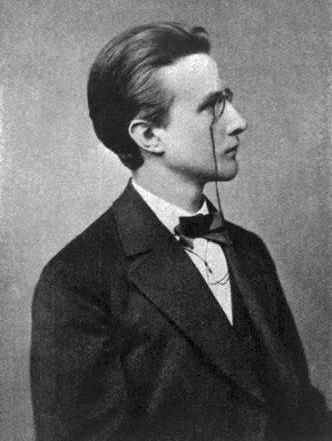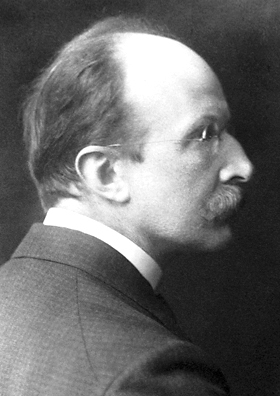Max Planck and Albert Einstein
There was much more to Max Planck than his work and research as an influential physicist. For example, Planck was an avid musician, and endured many personal hardships under the Nazi regime in his home country of Germany. Throughout much of his life, Planck maintained a strong relationship with Albert Einstein–both as a mentor and professional colleague and as a valued friend. To learn more about the life of Max Planck and his relationship with Albert Einstein, check out the following slideshow.

Max Planck and Music
Max Planck was an adept musician in addition to being a skilled scientist. As a kid, he demonstrated great talent as a singer, pianist, and organist—playing organ during church and singing in both his Lutheran church’s choir and his school’s choir as a soprano. Later in life, when he would frequently host parties with his first wife Marie, Planck was known to perform with his house guests. A favorite trio formed between Planck, his son Erwin, and Albert Einstein—who played the violin. Image credit: Max Planck 1878. Public Domain via Wikimedia Commons.

Max Planck Discovers Albert Einstein
Today, Max Planck is recognized for “discovering” Albert Einstein and his radical theories. In 1905, Einstein lacked both a Ph.D. and a university teaching position. However, Planck almost instantly supported Einstein’s relativity theory, and in part through Planck’s backing, Einstein became a key figure among the scientific community. Image credit: From left to right: Nernst, Einstein, Planck, Millikan, and von Laue in 1931. Public Domain via Wikimedia Commons.

Max Planck Lectures
Planck gave many lectures over the course of his life, though interestingly, one of his favorite topics of discussion on the relationship between science and religion. Planck enjoyed arguing that science and religion support one another in that the premise for both is that “there exists a rational world order independent from man” and “that the character of the world order can never be directly known but can only be indirectly recognized or suspected” (“Religion and Natural Science,” in Scientific Autobiography and Other Papers). The Nazi party disliked these talks because Planck failed to emphasize religion through a specifically Christian lens, and instead treated religion more openly. Planck’s broad-minded views on religion were similar to the religious convictions of Albert Einstein. Image credit: Eugen Fischer (left) and Max Planck (right) by Cold Spring Harbor Laboratories’ DNA Learning Center. CC BY-SA 3.0 via Wikipedia.

Max Planck and Black Body Radiation
Some of Planck’s most influential work revolved around his study of black-body radiation. Planck sought to uncover fundamental truths about the universe by exploring why all objects—regardless of size, shape, or composition—when at the same temperature would emit light at the same wavelengths. Einstein came to refer to Planck’s work in this area as “previously unimagined thought, the atomist structure of energy” (J. Heilbron, Dilemmas, p. 25). Image credit: Max Planck in 1918 by AB Lagrelius & Westphal. Public Domain via Wikimedia Commons.

Max Planck and Nazi Germany
By the winter of 1943, it was dangerous for German scientists, Max Planck included, to make any references to Albert Einstein in front of Nazi personnel—who believed Einstein to be a Jewish traitor. In 1993, Einstein became one of the first scientists to voice warnings about the terrors of the forthcoming Nazi regime. Though Planck remained driven with fierce loyalty to his German homeland, he did continue to commend Einstein’s work from time to time in his lectures. Image credit: 1927 Solvay Conference on Quantum Mechanics by Benjamin Couprie, Institut International de Physique Solvay, Brussels, Belgium. Public Domain via Wikimedia Commons.

Einstein's Relativity Theory
Einstein’s presentation of relativity theory inspired a decent amount of confusion—among the scientific community and general public, alike. This discomfort in Einstein’s theories mostly stemmed from their complexity, as they describe perception of motion from different vantage points that would require movement at rather unfathomable speeds in order to be detected. With Planck’s unwavering support, however, understanding of the brilliance of Einstein’s theories slowly spread. Planck was one of the first scientist following Einstein to publish a paper on general relativity, and he encouraged the publication of all five of Einstein’s radical papers in Annalen der Physik—a journal in which Planck served on the editorial board in 1906, and later would go on to operate as a chief editor. Image credit: Max Planck in 1933. Public Domain via Wikimedia Commons.

Planck and Einstein's friendship
In many ways, Einstein and Planck were opposites. Planck’s conservative politics, stern organization, and devotion to a professorial role in academia were countered by Einstein’s liberal beliefs, light-hearted disorganization, and distaste for university culture. However, the two maintained a deeply rooted friendship stemming from their shared devotion to a search for fundamental truths. Image credit: Max Planck by Bundesarchiv, Bild 183-R0116-504. CC BY-SA 3.0 de via Wikimedia Commons.
Featured image credit: “Artist’s impression of the surroundings of the supermassive black hole in NGC 3783″ by M. Kornmesser, European Southern Observatory. CC BY 4.0 via Wikimedia Commons.
The post Max Planck and Albert Einstein appeared first on OUPblog.

Oxford University Press's Blog
- Oxford University Press's profile
- 238 followers



